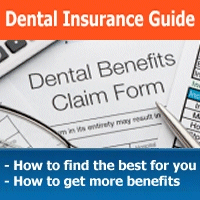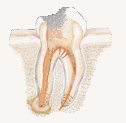
Tooth Pain Medicines
If you have a tooth abscess, a deeply fractured tooth or you just had a tooth extraction or other dental surgery, you will probably experience a strong toothache that can not be controlled with over-the counter pain relievers. In these cases you will need a stronger prescription-only toothache medicine to relieve the tooth pain.
Types of prescription toothache medication
A visit to the dentist for a prescription is necessary before you can purchase these tooth pain medicines from a drug store. The dentist will check your condition and provide the best toothache medicine to manage the dental pain.
Narcotics of the opioids family are controlled substances and for that reason dentists are generally careful about prescribing narcotic based drugs, only when they are really needed due to severe pain.
The ones that are prescribed the most often include drugs like oxycodone, codeine, or hydrocodone which are agents acting on the central nervous system.
- Codeine is a controlled substance, because it is metabolized by the body into morphine, which is a highly addictive substance if not used as prescribed or if its usage is extended over a few days.
- Oxycodone is another strictly regulated substance, usually prescribed for post-surgery dental pain.
- Hydrocodone is much stronger than other tooth pain medications, used for painful tooth infections.
Opioids have been found to have increased effectiveness when combined with NSAIDs or acetaminophen. The most known toothache medications of this category, used for severe dental pain, include:
- Tylenol 3 – Probably the most prescribed toothache medicine, Tylenol 3 is a combination of codeine with acetaminophen.
- Vicodin - Another popular toothache medicine, Vicodin combines acetaminophen with hydrocodone (5 mg of hydrocodone + 500 mg of acetaminophen)
- Vicodin ES – A more powerful combination of painkillers containing 7 mg of hydrocodone + 750 mg of acetaminophen
- Percocet - It combines the pain relieving effects of 500mg acetaminophen and 5mg oxycodone.
- Percodan – A combination of aspirin and oxycodone.
Your dentist will write you a prescription for the most suitable toothache medicine depending on the dental problem you have and the level of pain you experience, and give you the proper usage and dosage instructions in order to provide adequate pain relief minimizing any possible side effects.
Antibiotics - Toothache Medicines for Infections
When there is a bacterial infection such as in case of an abscessed tooth, pain medications can relieve the toothache but they can not treat the infected tooth. You will also need to take antibiotics to fight the infection. Most commonly used antibiotics for dental problems include:
- Amoxicillin
- Clindamycin
- Metronidazole
- Erythromycin
Toothache medicines – Safety concerns
As any other medication, toothache medicines may cause unwanted side effects especially when not used according to the dentist’s instructions.
- NSAIDs - The most common short-term side effects of NSAID usage are upset stomach, diarrhea and abdominal pain. Long-term use of NSAIDs, has been linked to gastrointestinal distress, kidney damage, and cardiovascular problems. NSAIDs should not be used in combination with certain high blood pressure drugs because the interaction may reduce their effectiveness.
- Toothache medicines containing aspirin should not be used by children because they can increase the risk of developing a serious health condition known as Reye's syndrome.
- Acetaminophen can cause liver damage if the recommended dosage is exceeded..
- Over-usage of pain medications that contain codeine, oxycodone or hydrocodone such as Vicodin and Percocet can cause drug addiction. These drugs are controlled by the Drug Enforcement Agency and their purchase is allowed by prescription only.
- Masking the pain caused by a tooth infection with strong painkillers without visiting the dentist will only make the infection worse and the damage to your teeth may become irreparable.
Precautions on using toothache medication
As any other medication, toothache medicines may cause unwanted side effects especially when not used according to the dentist’s instructions.
- Avoid taking any tooth pain medication without consulting your dentist or your physician, especially if you take any drugs for other health conditions as well.
- Never exceed the recommended dosage. Even the over-the-counter toothache pain medicines can cause serious health issues in case of over-dosage.
- Before taking non-steroidal anti-inflammatory drugs, especially aspirin, make sure that you have a full stomach or take an antacid to prevent having your stomach upset.
- Do not put aspirin directly against the gums near the aching tooth, as it may cause a chemical burn to the gum tissue.
- Never consume alcohol while you're using pain-killers.
- Narcotics can also make you drowsy or act strangely. If you take narcotics, you should let those around you know you are doing so. Also, you should limit your activities (driving, operating machinery, etc...) while taking narcotics.
- Toothache medicines should not be used as a mean to purposely delay or avoid the visit to your dentist. Continuing to handle tooth pain with medication and postponing treatment, may cause not only serious dental problems and tooth loss, but it can also lead to serious general health issues.
Related page: Over-the-counter Toothache Medications

 Dental Insurance
Dental Insurance Tooth Abscess Pain
Tooth Abscess Pain Tooth Extraction Pain
Tooth Extraction Pain